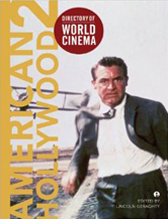
REVIEW: Infamous
It’s perhaps inevitable that some reviews for Infamous will draw comparisons with Bennett Miller’s similarly plotted Capote (2005), however such assessments seem grossly unfair. It’s not that the focus of Infamous is drastically different from that of Capote’s – in fact their narratives are remarkably similar – it’s just that by comparison, Infamous is the immeasurably lesser of the two.
 The central flaw with Infamous and where it arguably diverges most from Capote has to do with the script. Frequently undermined by the kind of melodramatic excesses you’d expect from a Barbara Cartland novel – writer/director Douglas McGrath’s work repeatedly suffers from a lack of dramatic sub-text. Characters utter dialogue marked by an absence of subtlety, complexity, and emotional depth. Where Capote derived its dramatic tension from carefully orchestrated silence, the meanings beneath what is said between characters, Infamous attempts to fill all of its screen time with explanation upon reason upon psychological motivation. Everything here is upfront that there’s nothing left to the imagination. The effect is entirely emotionally disengaging.
The central flaw with Infamous and where it arguably diverges most from Capote has to do with the script. Frequently undermined by the kind of melodramatic excesses you’d expect from a Barbara Cartland novel – writer/director Douglas McGrath’s work repeatedly suffers from a lack of dramatic sub-text. Characters utter dialogue marked by an absence of subtlety, complexity, and emotional depth. Where Capote derived its dramatic tension from carefully orchestrated silence, the meanings beneath what is said between characters, Infamous attempts to fill all of its screen time with explanation upon reason upon psychological motivation. Everything here is upfront that there’s nothing left to the imagination. The effect is entirely emotionally disengaging.
The structure too is uneven, relying upon faux interviews with the supporting cast that are interspersed throughout the narrative to provide exposition – as if anything else needed spelled out. Not surprisingly, the performances (particularly Toby Jones’ as Capote) suffer as a result, with none of the actors rising above the level of bland parody that one might expect from a midday telemovie. With an ordinary cast you could almost forgive such shortcomings but with an ensemble that includes the capable talents of Sigourney Weaver, Daniel Craig, Isabella Rossellini and Hope Davis, the performances border on embarrassment.
And it’s not just the script that’s overbearing, the art direction is so claustrophobically cluttered, so brightly coloured, that like the rest of the film, there’s little space left for contemplation. Perhaps this is because ultimately, Infamous seems more interested languishing in the glitz of Truman Capote’s New York lifestyle then about exploring any moral ambiguity, or obsessive tendency in his attempts to complete ‘In Cold Blood’. Even in the scenes of glitz and glamour, Infamous seems to struggle to find a consistent tone, shifting awkwardly between camp farce, period fling, serious drama and a kind of mockumentary blend of fact and fiction. This is depthless cinema at it worst, if only for the fact that it aspires to be more and fails at every turn.





RSS feed for comments on this post. TrackBack URI